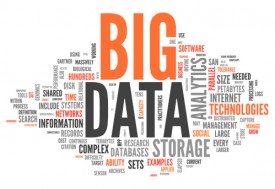HCCI Partners with NORC to Create Data Enclave

The most sophisticated gathering of healthcare data is being created with claims of 50 million Americans available.
- When it comes to decision making, data is king. The more you know, the easier it is to make accurate choices and implement the right systems. As a healthcare practice, it is easier to invest in electronic health records or a new revenue cycle management solution when you can look at how it has impacted hundreds of other practices instead of just a handful. This highlights why shared data is important.

Earlier this week, we reported on how analytics and big data are making a big push to become next big tool in healthcare decision making. Now, it seems the market is getting one step closer to making that future a reality.
It was announced this week that the Healthcare Cost Institute (HCCI) and the National Opinion Research Center (NORC) at the University of Chicago have joined forced to make healthcare claims of more than 50 million Americans available to academic partners and researches through a new Data Enclave.
David Newman, Executive Director of HCCI, and Tim Mulcahy, NORC’s Data Enclave Program Director, released a joint interview about the program. The HCCI enclave will provide a deep level of security and all of the tools and computing capacity that a researcher needs to work with confidential, sensitive healthcare data.
“Healthcare data needs a ‘Henry Ford’ moment to move from a realm of unconnected and unwieldy data to a world of connected and matched data with a common support for licensing, legal, and computing infrastructure,” Newman said.
The Data Enclave is designed for more than just securely storing sensitive data, as a main goal is to grant researchers more timely access to data. Studying the healthcare system with faster, larger datasets “everyone benefits.”
“The fact that you execute the same queries at orders of magnitude more quickly has huge implications for research and policy decisions in health care,” Mulcahy said. “The discovery potential here is enormous. With the Data Enclave, we can make faster, more informed decisions. This is not only a matter of speed, but accuracy. We have larger datasets and so our findings are more precise and the results are true results.”
According to Newman, there has been a lack of timely, detailed information to track the components of national commercial healthcare spending, support analysis of underlying cost drivers and explore the reasons cost and spending varies across the country was not available until recently. However, with the new Data Enclave, an avalanche of new data will become available for researchers and academic partners.
Mulcahy added that the Enclave will hold a significant percentage of the national data on privately insured lives. “Never before have we provided that level of access to data, and it will only increase as more commercial payers participate.”
The ultimate goal of the system is to create a “one-stop-shop” for healthcare data, which Newman claims does not exist. He would also like to see additional information including hospital and clinical data, electronic medical records and revenue cycle information in a single location. This will create the most sophisticated research on healthcare outcomes and quality ever produce.
